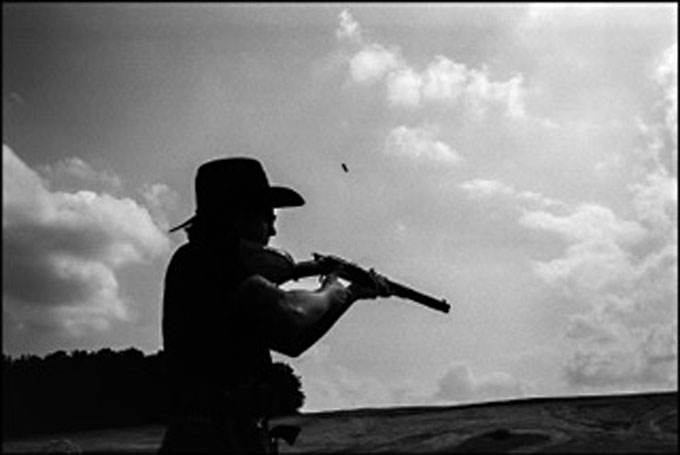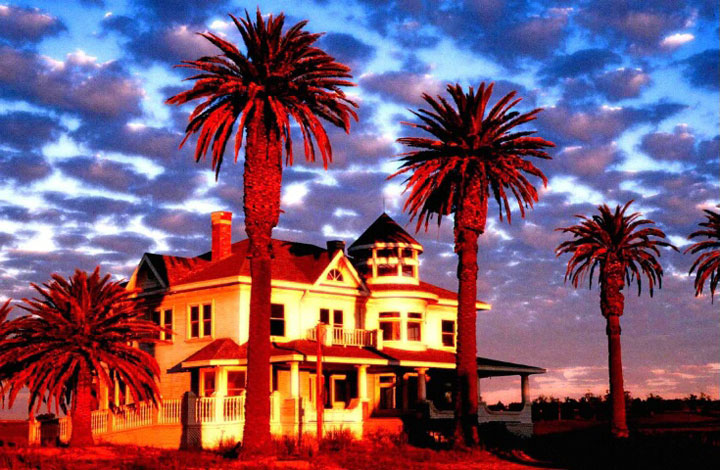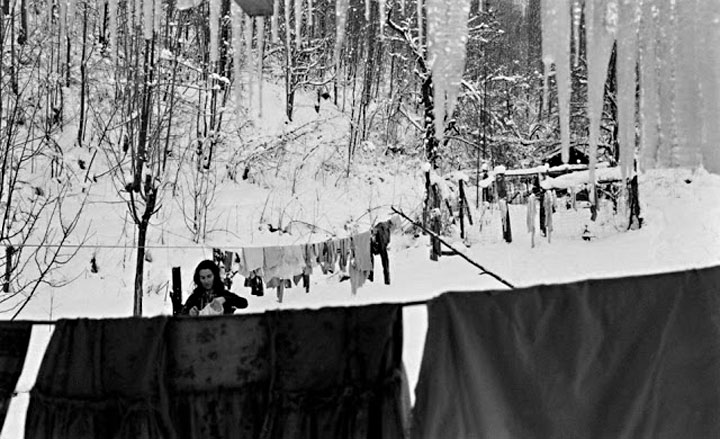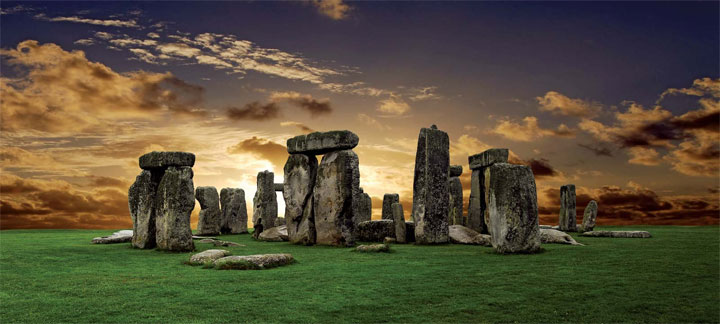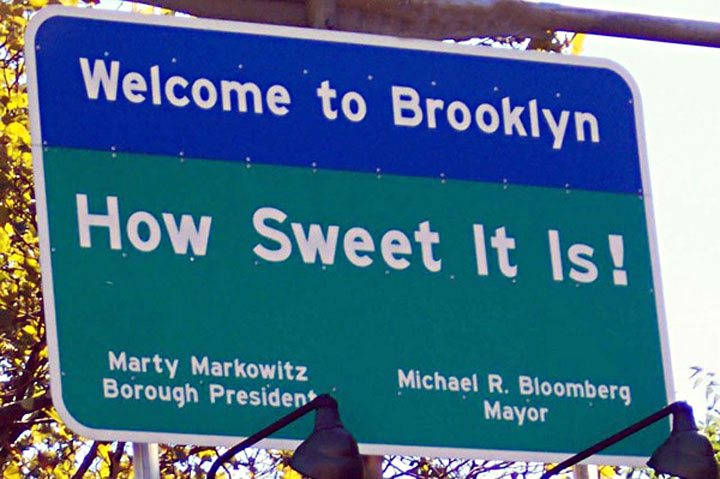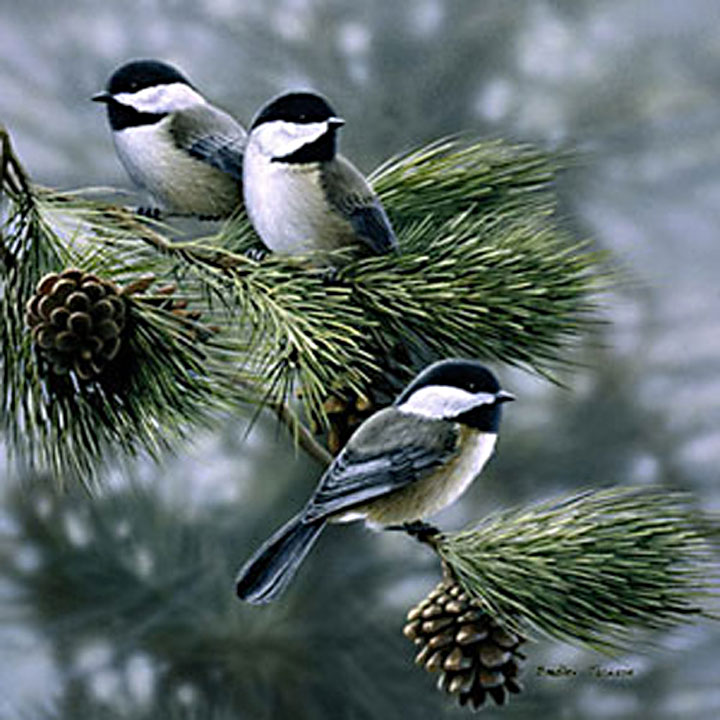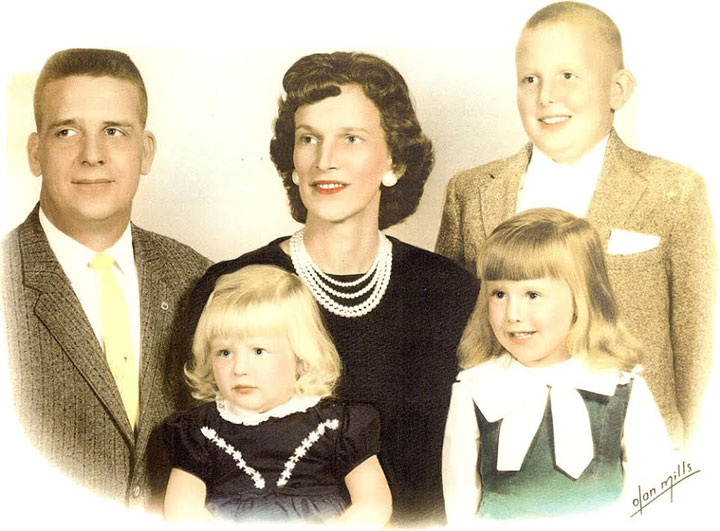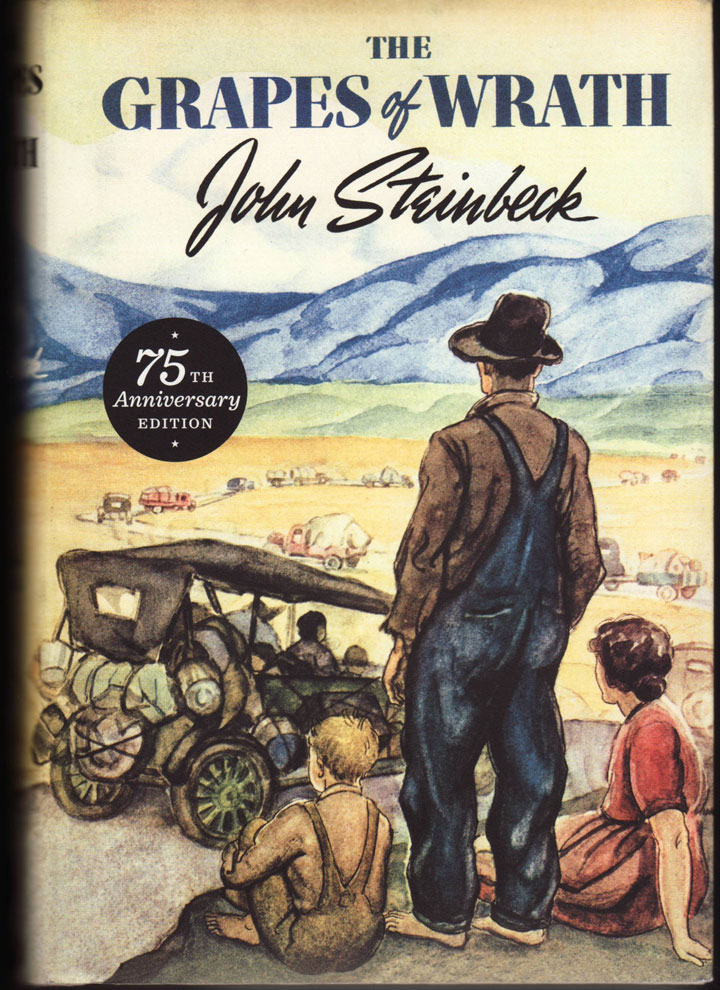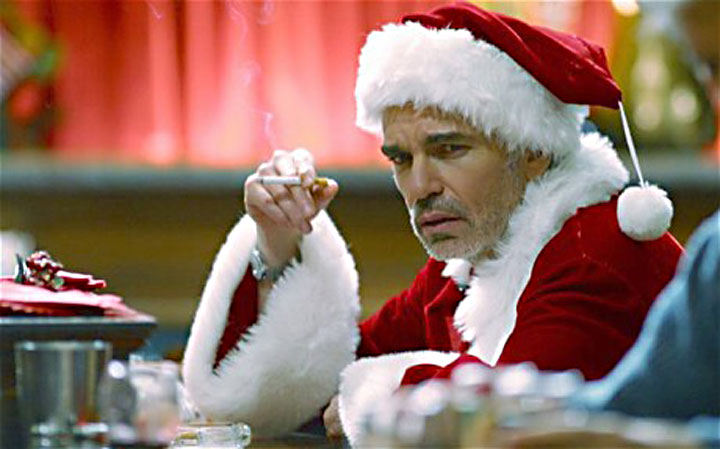Mark
Silhouetted by a sun about to fail,
this man takes aim. On the other side
his face must gleam, as a cartridge
case, ejected, tumbles wingless.
Skyward. Into clouds. Gray eyes
focus from the shade of a wide brim.
Sweat-curled hair spills from the hat
back, down his neck and collar.
The rifle butt narrows to its dark
barrel as a fist to an eager finger.
Clouds explode. Birds scatter.
His target convulses. Spins away.
In his holster a pistol sits snug,
walnut grip and trigger ready
for the short shot. To make sure,
he’ll cock again. Fire. And again.
At first, only the moon’s flushed
face begins to fade. An eye
rising into less light. Then
the red mist sudden, and fine.
